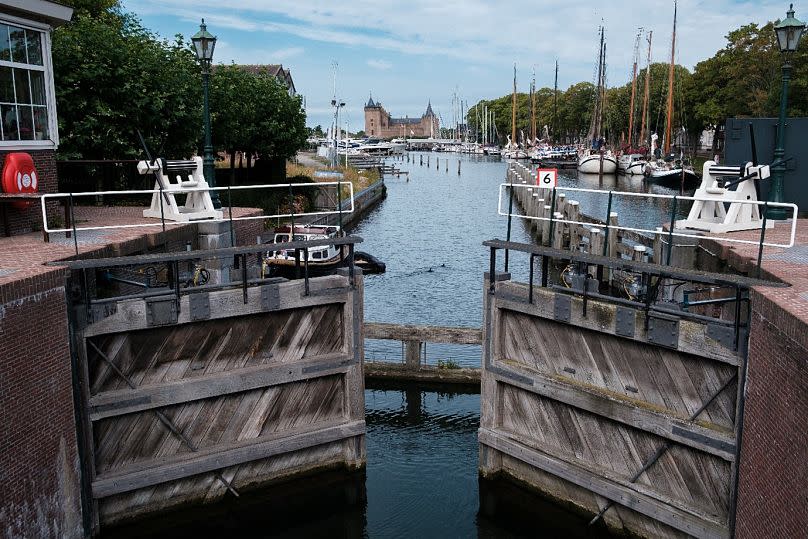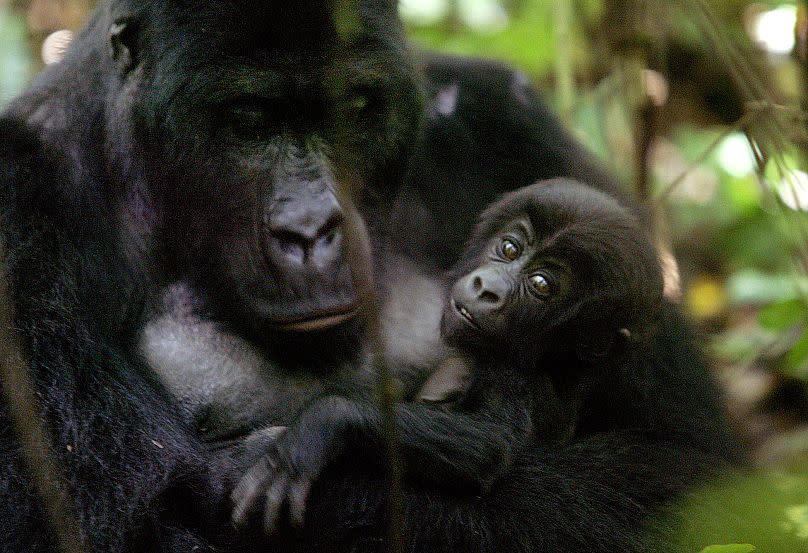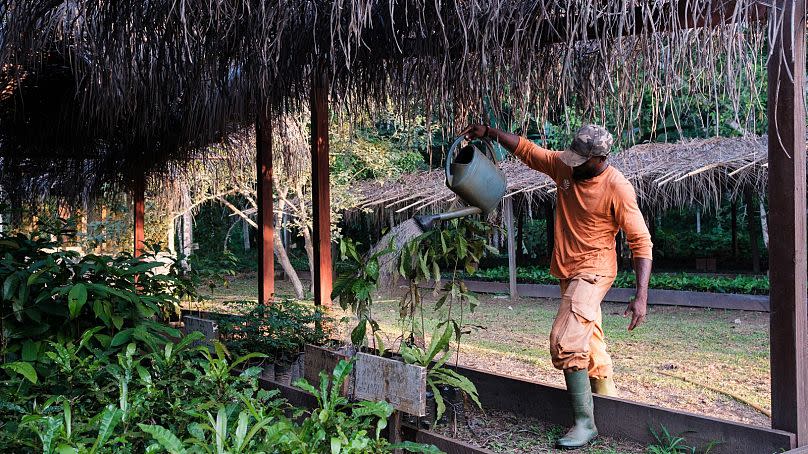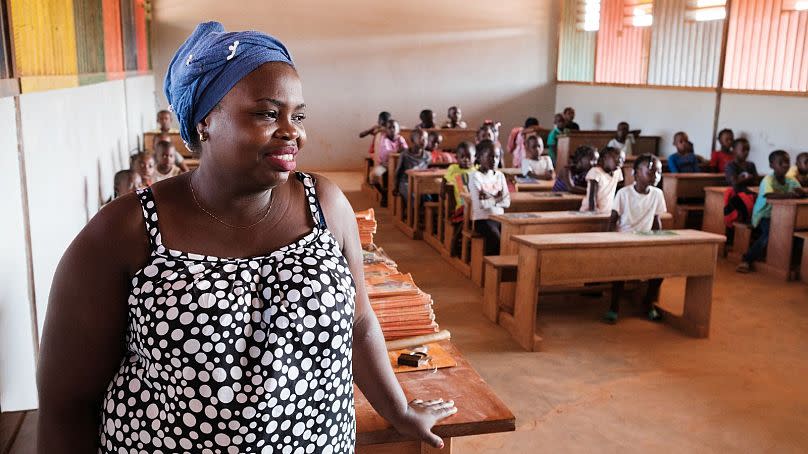The good foresters: Inside the Gabonese rainforest supplying Amsterdam’s lock gates

Lock gates have always been an essential part of Amsterdam. It only became liveable when the River Amstel was dammed to hold back the salty waters of the IJ.
Now the city has 200 sets of mainly wooden lock gates, offering an increasingly important defence as sea levels rise.
These fine pieces of woodwork come from a far more distant source than the 12th century fisherman who made Amsterdam’s first lock could have dreamed of: the Congo Basin.
More specifically, they’re made of Azobé wood from Gabon - a tropical timber renowned for its strong, water-resistant properties and used for everything from ship decks to train rails.

Tropical forest loss is a major global problem. But “harvesting trees does not mean deforestation,” says Aimé-Roger Malonda, forest operations manager at Precious Woods in Gabon.
The company - which is supplying Amsterdam’s lock gates from more than 8,000 kilometres away - is Forest Stewardship Council (FSC) certified: the gold standard in sustainable forest management. Here’s why the NGO has given its stamp of approval.
Tenerife declares a drought emergency after one of the 'driest winters in recent history'
Parts of Rotterdam lie 7 metres below sea level. Now it’s a global leader in how to stay afloat
Gabon: The net-positive Congo Basin country
The Congo Basin is home to the world’s second-largest rainforest after the Amazon. It spans six countries in Central Africa: the Democratic Republic of Congo (DRC), Cameroon, the Central African Republic, the Republic of Congo, Gabon and Equatorial Guinea.
This area contains around 3 million square kilometres of primary rainforest - the oldest, most ecologically rich kind - and is teeming with life. Just one hectare boasts double the number of native tree species than the entire UK. Altogether the Congo Basin’s towering trees take in 1.2 billion tonnes of carbon dioxide each year.
So it’s alarming to note that primary forest loss in the Congo Basin is on the rise. The DRC has experienced particularly high rates of deforestation, according to a 2022 report from Global Forest Watch, an online forest monitoring platform.

Gabon lies at the other end of the spectrum; it is one of eight countries which have reached net-zero emissions, according to the World Economic Forum. By protecting the forest which covers nearly 90 per cent of its land, Gabon captures more carbon than it emits.
“The authorities of Gabon, they want to put effort into preserving their own forest,” says David Zakamdi, director of sustainable management at Precious Woods. “And it is clear now that they are doing better than all the other countries around us.”
In 2021, the government decided to certify 100 per cent of Gabonese forest concessions to FSC standards.
Not all are fully certified yet, but Precious Woods’ example shows why it's worthwhile.
How a ‘mosaic forest’ is helping France adapt to rapid climate change
Deforestation-free cocoa: Will producers in the Ivory Coast pay the price for sustainability?
Foresters plant 9 seedlings for each harvested log
At its concession in Bambidié in East Gabon, Precious Woods manages almost 6,000 square kilometres of forest, containing more than 340 different species of tree.
The company is selectively interested in 15 of these, and per hectare, it will only harvest two or three of the roughly 380 that grow there, says Zakamdi.
Foresters plant at least nine young trees per harvested log, having nurtured the Azobé, Okoumé, and protected Kevazingo tree seedlings in an on-site nursery.
Around 70 per cent of these trees survive, according to one recent study, their chances bolstered by only being relocated when they reach 50 cm high. At that point, they’re much more likely to compete with other plants and withstand animal grazing. At two metres high, the trees are basically unstoppable.

These young trees aren’t simply replacements, according to Zakamdi. “When they are young, they’re growing in diameter and height to be an adult; they are sequestering more carbon,” he explains. “It can be something interesting compared to an old forest that has achieved its development.”
With stats and principles like these, Precious Woods resists being lumped together with illegal timber loggers and unscrupulous companies that are the target of recent anti-deforestation campaigns.
“I can understand why people can only think about bad foresters, but there are some people in the Congo Basin harvesting the forest by respecting all the national regulations, and equally respecting the forest certification standards,” Zakamdi tells Euronews Green.
“And knowing that FSC is one of the most strict standards in forest certification, we are sometimes offended when we are just put in the same basket as other people.”
Wind power awards and wildlife photography: Positive environmental stories from 2024
What's the difference between legitimate tree-planting schemes and scams?
Sustainable forestry: What are the benefits for people and biodiversity?
630 square kilometres of Precious Wood’s concession in East Gabon is dedicated to wildlife - in line with the FSC rule to make at least 10 per cent of the land ‘high value conservation areas’.
Deciding where to set aside requires careful observation of the elephants, gorillas, chimps and other animals in the rainforest, Zakamdi explains, noting where they mate and feed. Near his office, elephants - known as ‘gardeners’ of the forest - can be seen dipping in the pool or drinking from multiple freshwater sources.
FSC’s principles also have a strong social bearing. Precious Wood’s land is mapped out according to local communities’ “interest in the forest” Zakamdi says, so foresters can avoid culling trees of cultural significance.

Jobs are offered to local people first, and the company has invested in schools and other facilities so workers’ families are served in this remote area. The aim is “to promote the living of people in the forest.”
Tropical timber has unique properties, Zakamdi adds, “we will always need the wood, but being sure about where it's coming from is important.”
Amsterdam’s hefty lock gates might not bear the physical FSC label that other products do, but the city’s residents can rest assured that the wood protecting them is not contributing to sea level rise.
Watch the video above to learn more about the sustainable forestry operation in Gabon.


